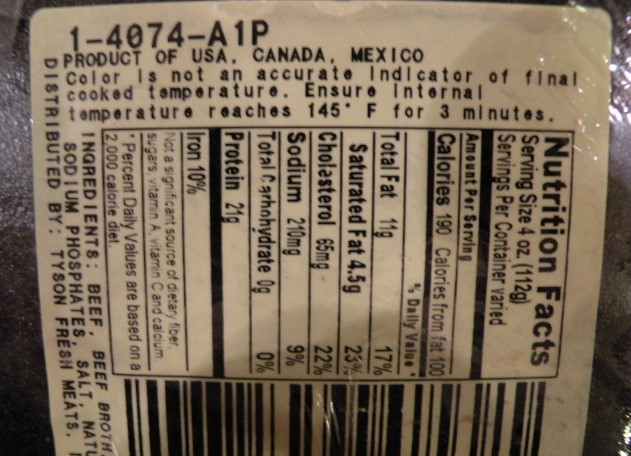
Beef Buzz News
Joint KSU, OSU Study Shows Little Effect of M-COOL on Consumer Behavior
Mon, 03 Dec 2012 15:36:54 CST

A joint study conducted by Kansas State University and Oklahoma State University looked at the impact of mandatory country of origin labeling of meat products on the retail level. The study was published last month. Its lead author, Kansas State Livestock Economist Dr. Glynn Tonsor said the study was trying to determine the exact costs and the exact benefits of M-COOL.
"An unknown before the policy was implemented and, to be fair, still an unknown, is what are the exact benefits and what are the exact costs? There was quite a bit of work done before hand trying to estimate what those benefits might be, what consumer-demand increases might be, but nothing was done afterwards. That was the main purpose of our study, to try to understand and estimate what consumer-demand response there has been. Now that we are in a post-implementation period, we can do that. We can compare pre- and post-implementation to assess how-or if-demand has increased."
MCOOL requires grocery retailers to provide country-of-origin labeling information for fresh beef, pork, lamb, chicken, goat, wild and farm-raised fish and shellfish, peanuts, pecans, ginseng, and macadamia nuts
Tonsor says only 20-25 percent of consumers are even aware we have country of origin labeling on meat products. He says that, as a result, there is no increase in demand for meat based on the geographic origin of the product.
"There's obviously other things like price effects, income effects, recession effects, those kinds of things that show up in those assessments, but for the issue at hand of M-COOL, we did not find demand impact. Which, actually, if you back up and think about it, is consistent with the observation- on the majority of the public not knowing that we have the law, that makes sense, right? If they're not aware of it, then we wouldn't expect to observe exercised differences in purchasing behavior. So, the punch line of all that would be it doesn't appear that the implementation of M-COOL, through our study, has led to an increase in demand.
"Now, economically, that's pretty important to identify outside of just our individual study here because we know there have been the cost of initiating the policy. Those are definitely debated. There are different studies out there about what the costs are, but they're not zero. This is a law that has compliance issues with it. The industry had to adjust to come into compliance. We're finding, basically, that there are no offsetting demand increases. That suggests a net economic loss to the industry."
Tonsor says their research indicates that while consumers express a preference that meat products carry a country of origin label, they seem to be indifferent about the country from which the meat product comes. He says this conclusion holds true across the species and products evaluated.
"Most of the public is not aware of M-COOL. We have not found an aggregate demand response looking at our grocery store scanner assessments. And, even when we find some survey-based indications that the public wants origin information, they're indifferent between some particular origin labels and that has some pretty important economic implications."
One of the study's implications is that if a Product of North America label is less expensive to implement in the context of MCOOL and consumers fail to place higher value on products carrying Product of United States labels, economic gains would occur by utilizing the less expensive labeling requirement.
The study concludes that the "overriding finding of limited awareness of MCOOL, narrow use of origin information in purchasing decisions, and no evidence of a demand impact following MCOOL implementation is consistent with the argument that voluntary labeling by country of origin would have occurred if it were economically beneficial to do so. More broadly, the findings of this project generally support the assertions of MCOOL opponents who have asked 'where is the market failure?'"
You can read a synopsis of the study by clicking here.
The Beef Buzz is a regular feature heard on radio stations around the region on the Radio Oklahoma Network- but is also a regular audio feature found on this website as well. Click on the LISTEN BAR below for today's show- and check out our archives for older Beef Buzz shows covering the gamut of the beef cattle industry today.
WebReadyTM Powered by WireReady® NSI
Beef News



















